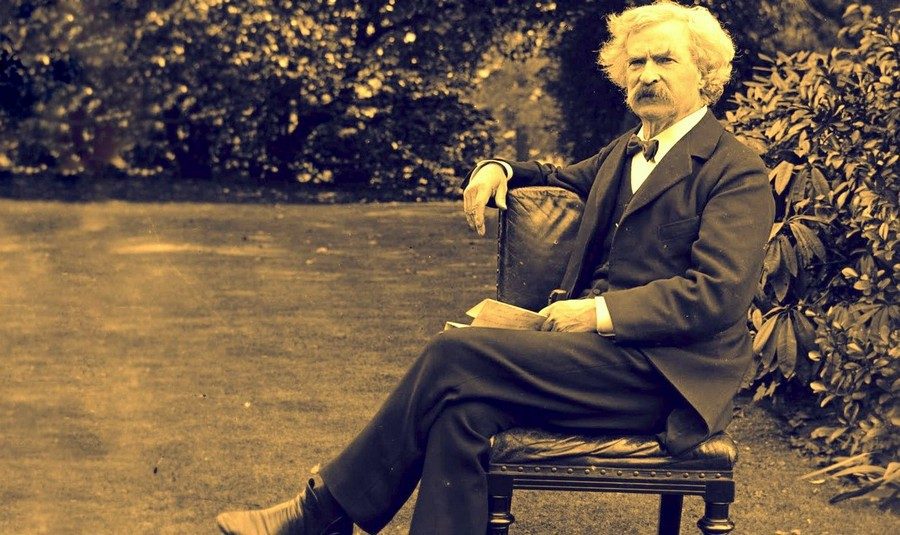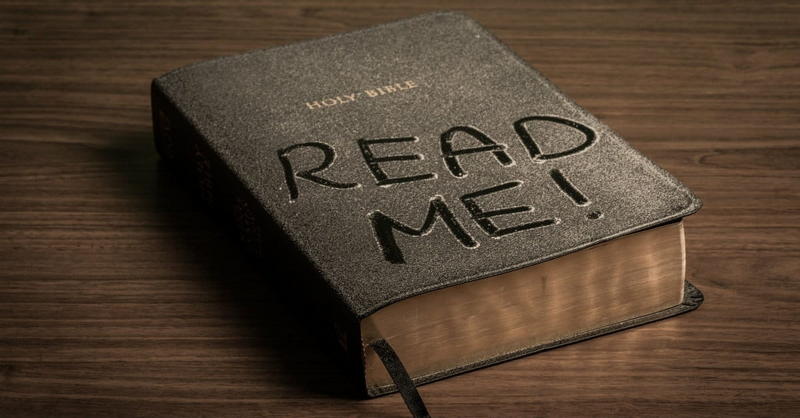
Yesterday, I read an article about vertical and horizontal morality; that most Evangelicals practice vertical morality. I found this to be the best explanation for the bad behavior we see from Evangelicals. How do we explain their overwhelming support of Donald Trump? How do we explain trolls such as Revival Fires, Dr David Tee, Jaisen, and John, to name a few? These under overpass dwellers have all the right beliefs, but treat people they disagree with like shit. Why? They have vertical morality. The problem, of course, is that Jesus primarily taught his followers horizontal morality.
For many Americans, the gap between Christian teachings and MAGA politics is baffling. How can people profess faith in Jesus ― who preached love, mercy and care for the oppressed ― while supporting policies that punish immigrants, demonize LGBTQ people and glorify cruelty?
The key to understanding this apparent contradiction might lie in something called “vertical morality.”
This ethical framework measures righteousness not by goodness to others, but by something more simplistic. Below, Christian advocates and former fundamentalists break down what vertical morality means and how it explains our political landscape today.
….
“Vertical morality teaches that authority, power and a moral code of right and wrong, or acceptable and unacceptable, come from ‘above’ ― an external superior who designates rules, systems and tenets that must be obeyed by those beneath,” said Tia Levings, a former Christian fundamentalist and author of “A Well-Trained Wife: My Escape from Christian Patriarchy.”
In the context of religion, the superior is God. In politics, it might be an authoritarian dictator. In a cult, it would be the controlling leader. Whatever the circumstances, the idea is that behaviors are only right or wrong based on what the figure in power says.
“Vertical morality in Christianity is the idea that our ethics and behaviors have a duty to please God alone. We get our morals from God and we must obey him, furthering the will of God no matter the cost,” said April Ajoy, author of “Star-Spangled Jesus: Leaving Christian Nationalism and Finding A True Faith.”
….
“Vertical morality is just how I describe what’s called ‘divine command theory’ in metaethics,” she said. “I’m a teacher, so I’m always looking for ways to make complicated concepts a little more simple. It’s basically the idea that morality comes from authority above, which is what I was taught when I was raised within conservative Christianity.” [Rachel Klinger King]
Vertical morality stands in contrast to the concept of horizontal morality, another term Klinger Cain has broken down in her videos.
“Horizontal morality prioritizes the well-being of our neighbors, communities and personal relationships,” Ajoy explained. “We act in ways that cause the least amount of harm to those around us, regardless of beliefs. Someone with vertical morality may help someone in need because they believe that’s what God wants them to do, versus someone with horizontal morality may help that same person for the benefit of the person that needs help.”
Rather than unquestioning obedience and superficial optics, this approach focuses on genuine empathy, compassion, and love toward others, recognizing the actual effects our actions have on people.
….
In Matthew 25, Jesus describes people who fed and clothed those in need, who welcomed the stranger, who took care of the sick and visited those in prison,” she noted. “He then says, ‘What you did for the least of these, you did for me.’ He equates loving our neighbors (horizontal morality) with loving Christ (vertical morality).” [April Ajoy]
….
“Evangelicals are taught that all morality comes from God and therefore true goodness can only be spread by obeying God, even if it harms people around us,” Ajoy said. “This isn’t necessarily a bad thing if pleasing God manifests by following the teachings of Jesus ― loving our neighbors, loving our enemies, promoting peace and taking care of the poor, the widow, the immigrant and standing up for the marginalized. It becomes dangerous when Christians weaponize this vertical morality for power, which is exactly what we’re seeing with the Christian nationalism in the Trump administration.” [April Ajoy]
“What’s interesting is that Jesus taught a compassionate, flexible, grace-filled view of what it means to live a life loving God,” Levings noted. “But today’s conservative Christianity is less influenced by Jesus and more by the Old Testament and Paul.”
She pointed to theonomy, the belief that Old Testament laws should be applied to modern society, as an influence on Christian nationalist politics.
ummarizing the role of vertical morality in the Old Testament, Klinger Cain highlighted the story of Abraham, who was commended for his willingness to obey God’s command to sacrifice his son Isaac, despite the act’s inherent immorality.
“What should happen if you have a horizontal moral system is, you should go, ‘I’m not murdering someone, even if an authority figure has told me to do that,’” she said. “But under vertical morality, that would be a sin because you’re disobeying God.”
Drawing from the most violent and extreme chapters of Biblical history, this approach frames unquestioning obedience as the highest virtue, even when it demands actions that defy compassion or common sense. And what might’ve once been a religious debate has now become a broader cultural conflict thanks to the role of conservative Christians in writing Project 2025 and otherwise shaping public policy.
“The problem with MAGA Christians is that they promote policies that often go against the teachings of Jesus,” Ajoy said. “They justify it by promoting a view of God that is vengeful. They demonize all immigrants as criminals, all queer people as predators, all leftists as violent and all Democrats as satanic ― with no evidence to back these claims. And because they believe in a literal hell and a God-ordained calling to make the nation Christian, they justify cruelty in the name of ‘tough love.’”
Under a vertical moral system, the worst thing you can do is disobey God’s laws, and this perspective has bled into politics as well. Klinger Cain offered the example of the rather callous response to “Alligator Alcatraz” and the extremely punitive treatment of immigrant detainees from MAGA Christians.
“On one side, we’re looking at people who are undocumented, so yes, they’ve broken a rule. But for the most part, there are no victims ― so why is our government being so harsh?” she said. “But the other side, with this fundamental Christian worldview, sees every broken rule as deserving a super harsh punishment. You don’t have to be a murderer or a rapist to go to hell. Every broken rule leads to hell ― even just taking a bite of an apple cursed all of humanity.”
This religious viewpoint desensitizes people, so inhumane immigrant detention feels fine and deserved. Klinger Cain added that, for people with this perspective, the only way to escape the fate of hell is not through good actions but simply by being on the right God-ordained MAGA team.
“Vertical morality has caused white conservative, MAGA-aligned Christianity to completely abandon the core of Christ’s teachings because their focus is on self-interest and perceived moral purity,” Hale said. “To them, they are Christians and haven’t abandoned the faith at all, but their framework measures righteousness in a way that can excuse behaviors that the general public knows and sees aren’t Christlike at all.”
This system also demonizes empathy. Some conservative authors have even written books describing empathy as sinful or “toxic.”
“If Abraham had empathized too much with his son and chosen not to kill him, then that empathy would have been a sin,” Klinger Cain said. “We’ve seen this concept play out in Christianity with pastors telling parents not to allow their children to be gay, even if it hurts them. The idea is don’t allow your empathy to support sin in this way.”
….
“Vertical morality feels safe in chaotic times, when ‘figuring things out’ or ‘learning from past mistakes’ feels daunting,” Levings said. “It’s also easier to comply with when the bottom-dwelling citizens feel like they have little power or agency to resist an authoritarian system. Sometimes, compliance is a matter of survival, and agreeing with it is a necessary means of getting along and staying safe.”
Hale agreed that vertical morality feels easier and less complicated than actually confronting systemic issues and the complexities of social justice.
“It’s easy to measure your faith by private devotion or rules that you think are in the bible, rather than by how you show up in the world,” she said. “The unfortunate part is that it can blind people to injustice and sometimes cause them to justify harmful behavior. When your focus is on individual righteousness rather than collective responsibility, you don’t learn how to show up for others ― you only care about your own journey.”
As a result, Hale added, you risk fostering a society where people aren’t held accountable for harmful actions and can be cruel and exclusionary, as long as they are “good Christians.” Rather than social responsibility, it’s all about personal salvation.
“We’re seeing vertical morality weaponized today in the Trump administration,” Ajoy said. “If they can convince people that they are ‘of God,’ then it doesn’t matter who they hurt in the process. They say Christian things. They quote scripture. But they are wreaking havoc on the very people Jesus calls us to love and care for. It reminds me of another verse in Matthew 15 that says, ‘These people honor me with their lips, but their hearts are far from me.’”
“Vertical morality can’t take into consideration modern advancements or needs, evidence of failures, new research and information and human progress in civilization,” she explained. “Those with a vertical structure aren’t inclusive or accepting of other worldviews. Diversity can’t exist because it threatens the high contrast right-wrong rigidity found in fundamentalist authoritarianism.”
— End of Quote —
Bruce Gerencser, 68, lives in rural Northwest Ohio with his wife of 47 years. He and his wife have six grown children and sixteen grandchildren. Bruce pastored Evangelical churches for twenty-five years in Ohio, Texas, and Michigan. Bruce left the ministry in 2005, and in 2008 he left Christianity. Bruce is now a humanist and an atheist.
Your comments are welcome and appreciated. All first-time comments are moderated. Please read the commenting rules before commenting.
You can email Bruce via the Contact Form.









